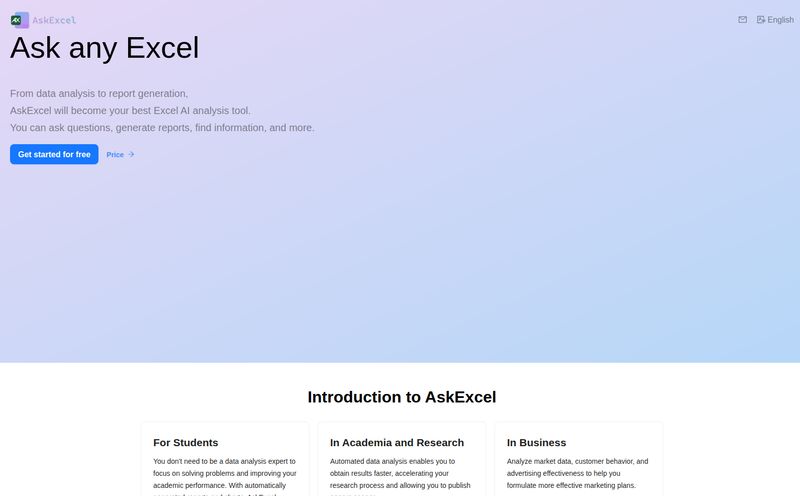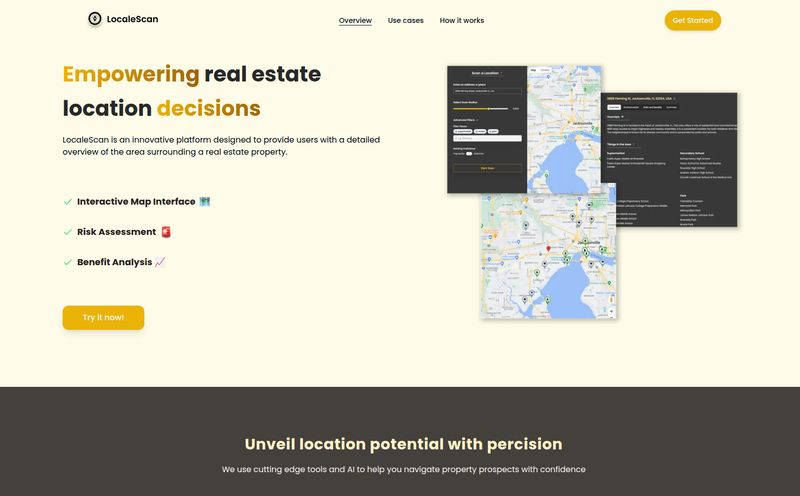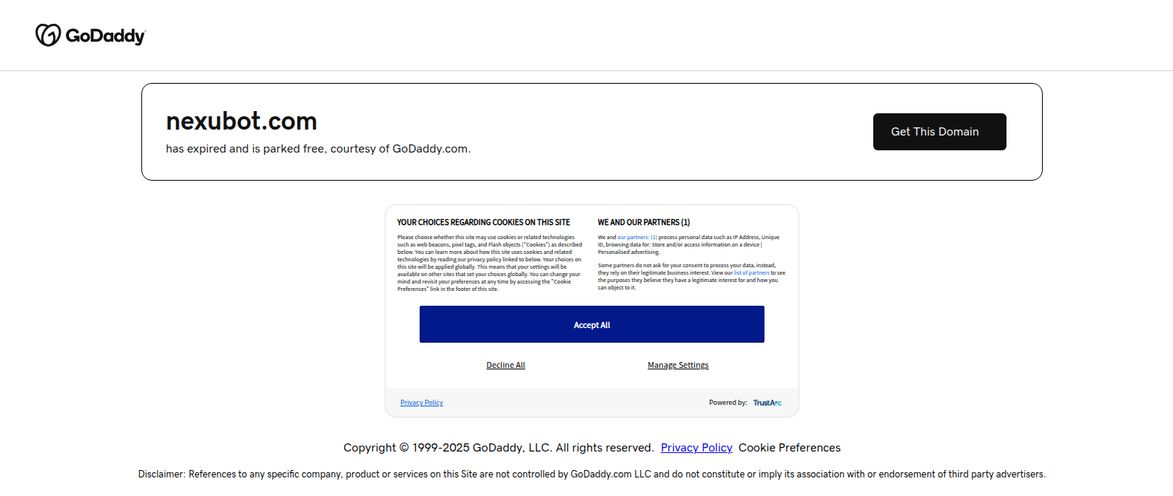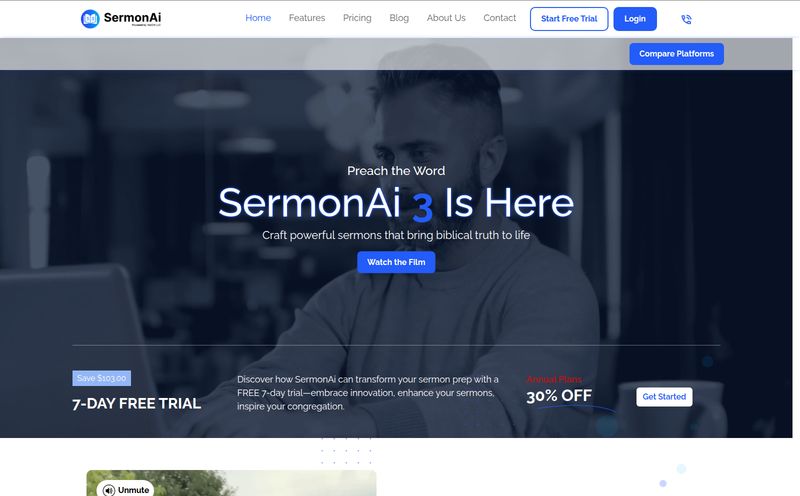I still have vivid, slightly traumatic memories of my first attempt to learn Python. It wasn't the `print("Hello, World!")` that got me. It was the setup. The endless command line errors, the PATH variables that seemed to lead nowhere, the sheer frustration of trying to get the tools working before I could even write a single line of actual code. It’s a rite of passage, I guess. A weird hazing ritual that weeds out the faint of heart.
So, when a platform like Coddy pops up with the bold claim of “No Frustration,” my inner skeptic, hardened by years of SEO and tech promises, raises an eyebrow. But the part of me that remembers that first painful setup leans in, intrigued. A place to learn by doing, with an integrated compiler and an AI assistant to hold your hand? Okay, Coddy. You have my attention. Let's see what you're all about.
What Exactly is Coddy, Anyway?
At its core, Coddy is a browser-based learn-to-code platform. That means you don’t download anything. You just go to their website, sign up, and start coding. The whole philosophy is built around a concept that I’ve been championing for years: learning by doing.
For too long, the path to coding was paved with watching hours of video tutorials, where you passively absorb information, only to find yourself completely lost when faced with a blank screen. It’s like watching a cooking show and then being expected to prepare a five-course meal without ever having touched a knife. Coddy tries to flip that script. The code editor is right there, next to the lesson. You learn a concept, you immediately apply it. It’s simple, direct, and frankly, how it should have been all along.
The Magic Wand: Coding Directly in Your Browser
Let's talk about the single biggest feature that made me nod in appreciation: the integrated compiler. If you’re new to this, a compiler (or interpreter) is the software that turns your human-readable code into something the computer can understand and execute. Setting this up locally on your machine is the hurdle I mentioned earlier.
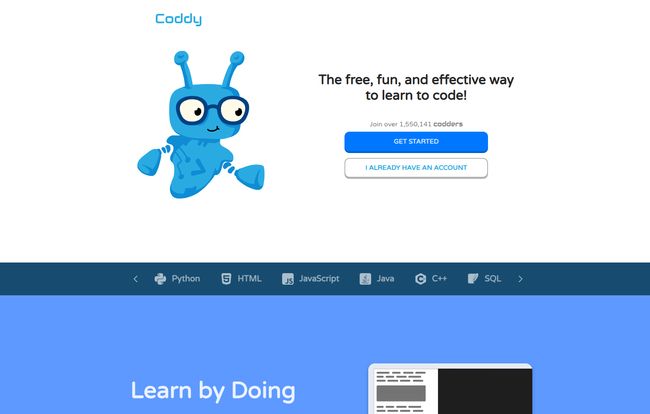
Visit Coddy
Coddy just… does it for you. Right in the web page. This is a game-changer. It lowers the barrier to entry from a towering wall to a small step. You can be on your lunch break, on a friend's laptop, or on a library computer, and you can pick up right where you left off. There's no need to install Python, configure VS Code with seventeen extensions or figure out why your Node.js environment suddenly hates you. It just works. This feature alone makes it a fantastic starting point for anyone who feels intimidated by the technical setup.
And it's not just for one or two languages. The main page cycles through Python, HTML, JavaScript, Java, C++, and SQL. A peek at the footer reveals an even bigger list, including C#, Go, PHP, and even Rust. That’s a pretty decent spread.
Your Own Personal AI Tutor (That Doesn't Judge You)
Okay, here’s the 2024 buzzword: AI. Every tool has it, but how useful is it really? Coddy’s angle is an “AI assistant” designed to provide support, hints, and explanations when you get stuck.
We’ve all been there. Staring at an error message that looks like gibberish, feeling too embarrassed to post on Stack Overflow because you know the first comment will be a snarky “this question has been asked before.” The idea of having an AI buddy to nudge you in the right direction is incredibly appealing. It’s a safety net. Instead of just giving you the answer, it promises to explain why your code is broken. This is the difference between cheating on a test and actually having a tutor help you understand teh material. If it works as advertised, it could be the perfect antidote to the isolation and frustration that often comes with self-directed learning.
Building a Habit with Daily Challenges
Another thing that caught my eye is the “Practice, Daily” mantra. Coddy uses generative AI to create what it calls “endless coding challenges.” This is smart. Very smart.
Consistency is everything when you're learning a new skill. Coding for 20 minutes every day is infinitely more effective than a frantic 5-hour cram session every Sunday. By offering a fresh, AI-generated challenge daily, Coddy gamifies the learning process and encourages you to build a sustainable habit. It turns coding from a monumental task into a small, satisfying daily puzzle. This is the kind of feature that separates people who start learning to code from those who actually learn to code.
The Good, The Bad, and The… Missing Price Tag
No platform is perfect, and after poking around, I’ve got some thoughts. Let’s get into the nitty-gritty.
What I Really Liked About Coddy
The combination of an in-browser compiler and AI help is the clear winner. It's a powerful one-two punch that directly addresses the biggest pain points for beginners. The bite-sized lessons are also a great touch, making it easy to squeeze in some learning whenever you have a spare moment. The whole platform feels designed to remove excuses. Can’t set up your environment? Not a problem. Don’t have hours to spare? The lessons are short. Afraid of getting stuck? The AI is there. It’s a very thoughtful approach to user experience.
A Few Things That Gave Me Pause
My biggest gripe? The transparency, or lack thereof. You land on the page, and it says “The free, fun, and effective way to learn to code!” But there is absolutely no pricing page. No /pricing URL in the footer, no mention of costs, nothing. To find out what this will actually cost, you have to register first.
This is a pet peeve of mine. I understand the marketing logic—get the user’s email first, get them invested—but as a consumer, I want to know the deal upfront. Is it a freemium model with limited access? A free trial that requires a credit card? A full subscription? This ambiguity feels a bit dated and makes me wary.
Secondly, you don't get a lot of information on the specific course content before you sign up. I can see I can learn Python for Data Science, but I can't see the syllabus or the first few lessons. It's a bit of a blind date; you have to commit to giving them your info before you really know what you're getting into.
So, Who is Coddy Actually For?
Based on my analysis, Coddy seems perfectly tailored for a few groups:
- Absolute Beginners: If the thought of the command line and software installation gives you hives, this is your safe space. It’s probably the most gentle introduction to practical coding you can find.
- Habit-Builders: If you've tried and failed to learn before because you couldn’t stay consistent, the daily challenge feature could be the key to finally making it stick.
- Casual Learners: Want to understand what all this Python fuss is about without committing your entire life to it? Coddy seems like a great way to dip your toes in.
Who is it probably not for? If you're an experienced developer looking for deep, advanced architectural concepts, this might be too basic. It’s a launchpad, not a deep-space vessel.
Final Thoughts: Is Coddy Worth Your Email Address?
So, we circle back to the main question. Is Coddy the real deal? I think it has tremendous potential. The core idea is brilliant. It tackles the most significant, most frustrating barriers to entry for new coders with elegance. The focus on immediate practice, daily habits, and AI support is a recipe for success.
The mysterious pricing is a definite drawback for me, but it's not a dealbreaker. It’s more of an annoyance. Given that you can register with a Google or Facebook account in two clicks, the cost of finding out the truth is pretty low.
My verdict? If you are new to coding, or if you've been wanting to start but feel paralyzed by the setup, yes, it's absolutely worth a look. Go create a free account. See what's behind the registration wall. The platform's promise is huge, and even if you only use the free features, that frictionless in-browser experience is a fantastic way to finally write your first real lines of code.
Frequently Asked Questions about Coddy
- Is Coddy free to use?
- The homepage advertises a "free" way to learn, but detailed pricing information isn't available without registering. It's most likely a freemium model, where you get basic access for free and pay for more advanced courses or features.
- What programming languages can I learn on Coddy?
- Coddy supports a wide range of popular languages, including Python, JavaScript, HTML, CSS, SQL, Java, C++, C#, PHP, Go, and Rust.
- Do I need to install anything to use Coddy?
- No. That's one of its main advantages. Coddy operates entirely in your web browser with an integrated compiler, so there is no software to install or configure.
- How does the Coddy AI assistant work?
- The AI assistant is designed to help when you get stuck. Instead of just giving you the answer, it provides hints, explanations, and suggestions to help you understand your errors and find the solution yourself.
- Is Coddy a good choice for complete beginners?
- Yes, it appears to be an excellent choice for beginners. The combination of no setup, bite-sized lessons, and AI support removes many of the common frustrations that cause new learners to give up.
Reference and Sources
- Coddy Official Website
- FreeCodeCamp - A popular free learning platform for comparison.
- Stack Overflow Blog: What makes a good question - A look into the complexities of asking for help in developer communities.
